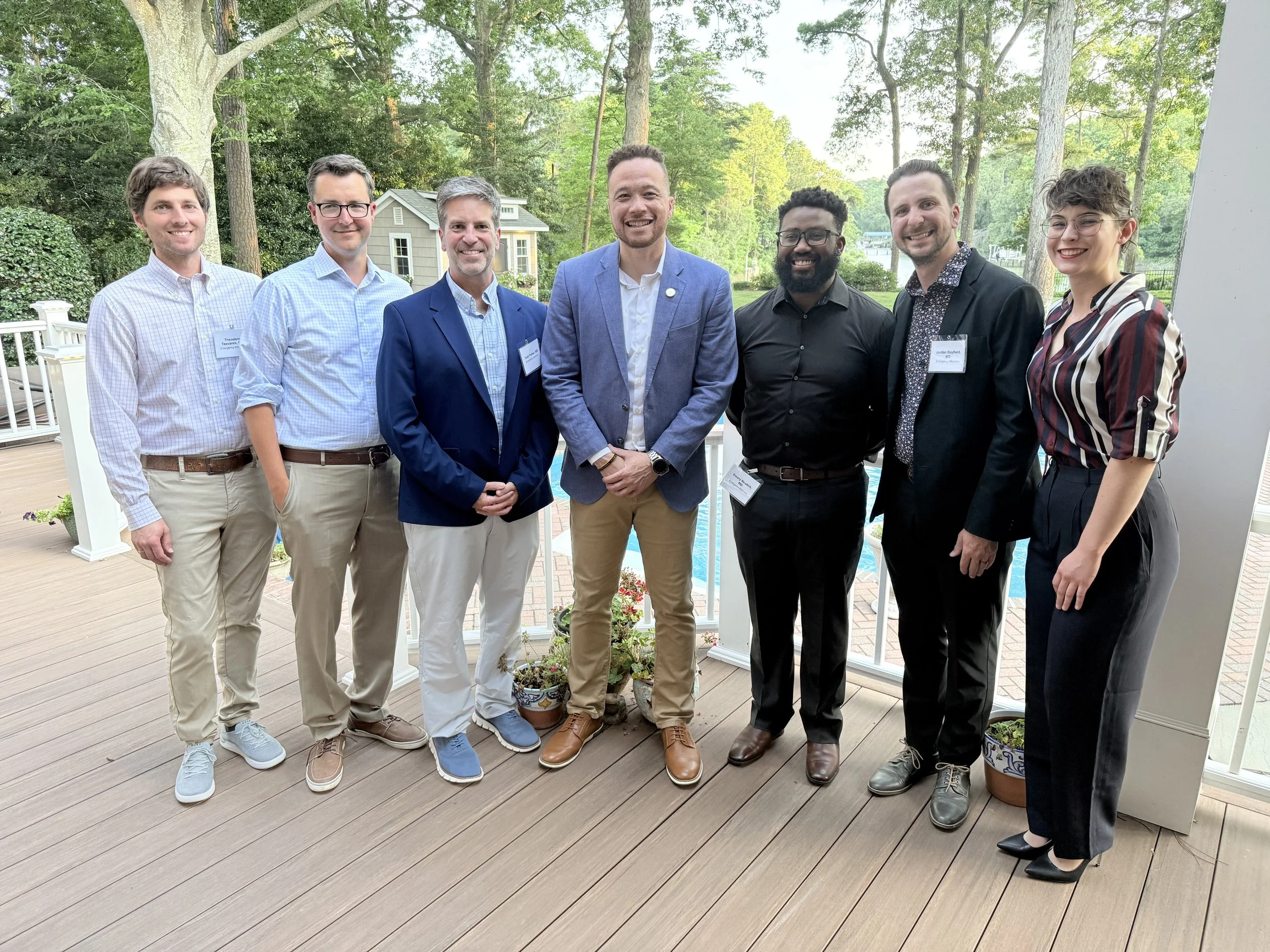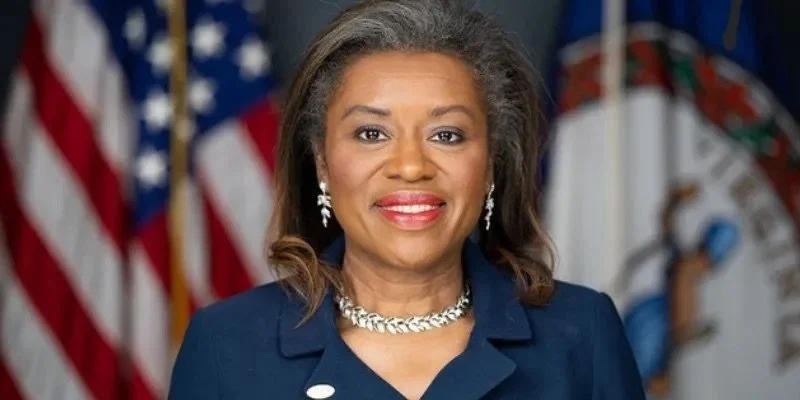Emergency Medicine in the 2025 Virginia Elections
A look at the races, the issues, and why giving to EMPAC-VA is more important than ever
Virginia’s election season is in full swing.
The best way to ensure we elect lawmakers who share emergency medicine’s values? Give to EMPAC-VA.
The state laws that guide how you deliver care in your emergency room are created in Richmond. And the officials in charge of passing or defeating those policies are up for election this year. Leaders of VACEP — emergency physicians by day and night — work year-round with lawmakers and successfully advocate for and against legislation that impacts emergency medicine. Two new laws that involved VACEP went into effect on July 1:
Physically present physicians: Physicians must be physically present in the emergency department 24/7 — not merely on call. The new law, introduced by VACEP in last year’s General Assembly, is based on model language developed by Indiana ACEP. A similar law just passed in South Carolina. These moves show the importance of physician-led care.
Workplace violence reporting: Virginia healthcare employers are now required to have workplace violence prevention plans and reporting systems. Employers must document, track, and analyze incidents of workplace violence and maintain records of incidents for at least two years. The law aims to enhance the safety of healthcare workers through continuing education, de-escalation training, risk identification, and violence prevention planning. Virginia joins 12 other states with similar requirements. VACEP supported this bill.
We’ve pulled together a guide that outlines the upcoming elections and the importance of giving to EMPAC-VA.
The critical importance of House elections
Perhaps most notable for emergency physicians are the elections in the House of Delegates. All 100 of the chamber’s seats are up for reelection this year. Some districts are more competitive than others.
In late June, VACEP members turned out to attend a fundraiser for Del. Michael Feggans, MCS in the competitive Virginia Beach House district. There, we were able to meet and share the importance of supporting legislation to advance emergency medicine. From l-r, with Del. Feggans at center: Drs. TJ Tzavaras, Greg Weingart, Todd Parker, MD, FACEP, Emory Newkirk, MD, Jordan Gayfield, and Kiersten Potter.
Like the Senate (which won’t see elections until 2027), the House is where legislation is considered every year during the General Assembly that impacts the practice of emergency medicine. Thousands of bills are debated (hundreds tied to medicine, and a handful related to emergency care). If a bill passes both chambers, it moves to the Governor for signature or veto.
This means decisions surrounding emergency physician autonomy, reimbursement, medical malpractice, scope of practice and much more get made in Richmond and eventually trickle into our EDs — for better or worse. Lawmakers debate, create, and defeat legislation that impacts emergency medicine and quality care. To ensure they pass bills that positively impact care, it’s important emergency physicians show up.
Election Day is November 4.
Statewide Races: Governor, Lieutenant Governor, and Attorney General
Spanberger
No matter who wins, Virginia will swear in its first female governor in January. Democrat Abigail Spanberger faces Republican Winsome Earle-Sears, the current lieutenant governor. Spanberger is well ahead in polls and Democrats have raised significantly more cash across all three races.
Lieutenant Governor: Ghazala Hashmi, a Democratic state senator since 2020, is running against former conservative radio host John Reid. This race is also history-making: Reid is Virginia’s first openly gay nominee, and Hashmi as the first Muslim and Indian-American on the ballot.
Attorney General: Current Republican Jason Miyares hopes to keep his seat from Democratic challenger Jay Jones.
Earle-Sears
Outside analysis
“Poll: Spanberger widens lead as Virginia voters prioritize cost of living, personal freedoms; New VCU poll shows Democrats ahead in all statewide races.” - Virginia Mercury
“Virginia’s off-year elections are being viewed by both parties as a key bellwether heading into next year’s midterms, as well as a potential indicator for how voters view President Trump.” – The Hill
“What really affects me about this year is this is diversity on steroids. The parties have done a good job in getting a better representation of the population.” - Larry Sabato, Director of the UVA Center for Politics
VACEP’S FOCUS IN ‘25-’26
For physicians in Virginia, getting notice of a Virginia Board of Medicine complaint can be an overwhelming experience — especially when it's unfounded, as many have been in recent years.
Complaints to the Board have risen in recent years, but many are unrelated to substandard care. Even so, these complaints often lead to costly, time-consuming in-person investigations that can cause stress, burnout, and even career disruption. The physician and provider community believe many of these stressful and time-consuming visits can be avoided with a preliminary review. In Florida, for example, there exists a preliminary clinical review process that swiftly closes baseless complaints.
VACEP is taking action. We are working closely with the Virginia General Assembly’s Joint Commission on Healthcare, the Medical Society of Virginia, and Department of Health Professions on policy changes to the Board of Medicine’s investigation process. In addition, we are working with the Virginia Hospital & Healthcare Association and the Board of Medicine to rephrase language surrounding no-fault investigations during licensing and credentialing. We will have more to share soon. In the meantime, we have created a brief handbook for any physician facing an investigation.
2025 virginia ELECTIONS CALENDAR
September 19: First day of early, in-person voting for November general elections
October 24: Deadline to register to vote in November election (otherwise, must cast a provisional ballot)
October 24: Last day to apply for an absentee ballot to be mailed to you for November elections
November 1: Last day of in-person early voting for November elections
November 4: Election Day
We’ll be direct: VACEP’s political action committee needs money. We use that money to attend fundraisers and get in front of candidates with our message: that physician-led patient care in the emergency department is the gold standard and should be nothing less. Building relationships with lawmakers and political candidates now helps us build trust and inform policymakers of regulations and legislation that can both help or harm our specialty and, by extension, the people under our care.





